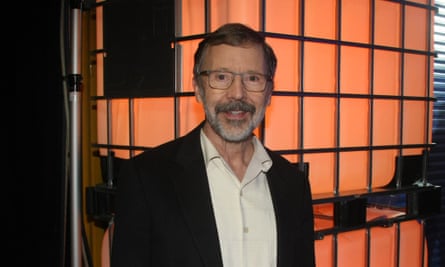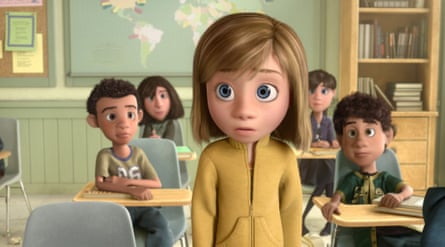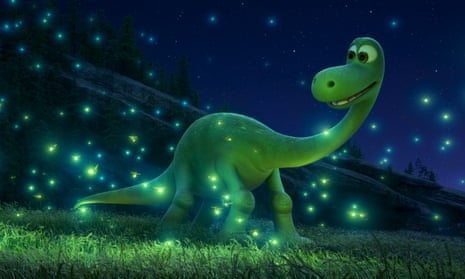Pixar Animation co-founder Ed Catmull has warned that virtual reality technology may not be the revolution in storytelling that some of its evangelists have claimed.
“It’s not storytelling. People have been trying to do [virtual reality] storytelling for 40 years. They haven’t succeeded. Why is that? Because we know that if they succeed then people would jump on it.”
As one of the key figures at the company that created movies including Toy Story, Up and Inside Out, Catmull’s views carry weight within the film industry, as studios gauge the potential of the latest generation of virtual-reality headsets and apps.
However, in an interview with the Guardian, he stressed that his caution on VR as a storytelling medium does not mean he sees the technology as a creative dead-end.
“We have a whole industry which is gigantic: games. Games is very successful. It’s its own art form though, and it’s not the same as a linear narrative,” said Catmull. “Linear narrative is an artfully-directed telling of a story, where the lighting and the sound is all for a very clear purpose. You’re not just wandering around in the world.”
Catmull recently made a keynote appearance at the Web Summit conference in Dublin, where Oculus VR founder Palmer Luckey had made the case for the potential for virtual-reality storytelling. Catmull said that his own views were based on his long experience in the computer graphics and animation industry.
“Virtual reality’s been around for 40 years. People have been talking about storytelling in that world for all these years, and there have been experiments around of people trying to do that, and always excited about it,” says Catmull.
“Now with Oculus they’re saying there’s a new storytelling medium. All that the new virtual-reality stuff did was they removed the time-lag, because it was the time-lag that made you feel that you weren’t in the environment.”
“It’s good, but it’s not storytelling. The fact that you’ve changed the technology, and people are excited about it, doesn’t change the underlying difficulty of the compelling narrative story. Just like books aren’t the same things as movies. They don’t have to be,” he said.

Catmull added that he believes VR will have some fascinating interactive applications – “experiences” as he put it – but reiterated his caution about its potential for linear storytelling.
“I know there’s talk of it, but I don’t think it’s actually based on our way of connecting with each other. Having said that, I think they should keep running the experiments. But the fact that we should run the experiments and the fact that the technology has changed doesn’t mean that it’s going to end up where they think it is,” he said.
Catmull is willing to be proved wrong, just as Pixar proved sceptics wrong when it was working on its first computer-animation film Toy Story, which was released in 1995.
“For me this was one of those non-questions: it was just silly. We haven’t seen it before so it can’t work? What? And it still happens: people haven’t seen something before, then they question it,” he said.
Catmull’s audience at the conference included hundreds of technology startups – an industry that’s regularly accused of living in a bubble of inflated valuations and undercooked ideas. However, he sees it more as a hotbed of experimentation.
“We have a lot of startup companies here, and some will fail and some will succeed. It’s only by trying a lot of things that you actually make the progress. Can we predict which one it is? No, not really,” he says.
“They’re all trying their best to do it, and I admire them for it, and some won’t succeed. They’ll learn something from it and they’ll go somewhere else, and some will actually have gained from that experience, even though it’s painful when you go through it. So it’s a process that we should willingly embrace.”

The success of Up and Inside Out showed that Pixar can still put bums on seats in cinemas, even at a time when the children who make up much of its audience are getting an increasing portion of their entertainment watching videos online or playing games like Minecraft.
Catmull said he sees the next generation of animators and technologists as being fuelled by these choices, rather than hampered by them.
“When I was young, it was television that was taking off, and so you had people worried that people were spending too much time watching television. Now, if you look back on that, you can say that, in fact, some people did spend too much time on television. And some people were stimulated by it,” he said.
“So how did it work out in balance? It’s a pretty hard question … So now it’s not just games, but free access to certain kinds of entertaining things on YouTube and so forth. So the question is ‘What’s the long-term impact? Is it stimulating, is it mind-deepening?’ And it’s probably both: some will be stimulated to go on, and some won’t.”
For its latest film, The Good Dinosaur, Pixar continued its practice of sending its creators away from their screens to do first-hand research.
“They go to various places: they have to learn about French kitchens, or diving in the ocean, or, in the case of The Good Dinosaur, they went up in the mountains in the Grand Teton National Park,” he said. “You have to go out and find something you didn’t know about – and, in doing that, it transforms people.”

Comments (…)
Sign in or create your Guardian account to join the discussion